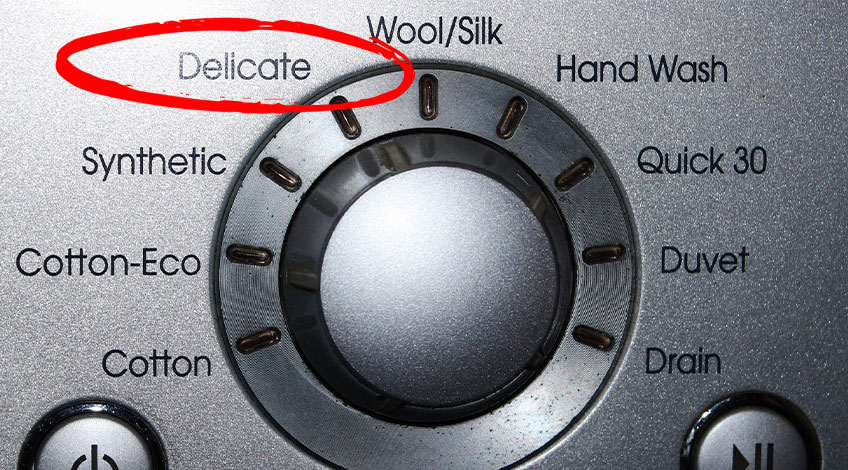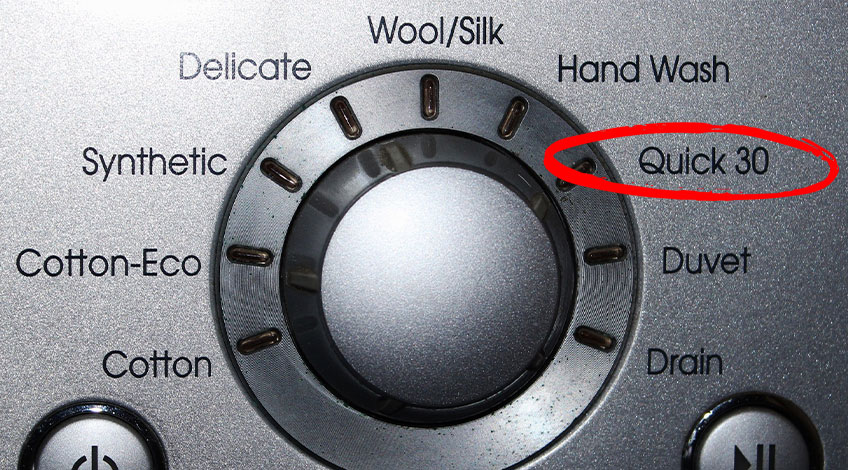
Why Does My Washing Machine Take 3 Hours To Wash?
Have you ever found yourself wondering why your modern washing machine seems to take an eternity to finish a laundry cycle? If you’re nodding along, you’re not alone.
If you live in the UK where conserving energy and water is a top priority, your washing machine’s extended wash time may be a result of efforts to make our laundry routine more eco-friendly and save more water and energy. Aside from this, there are other reasons why your washer has been spinning for 3 hours, such as an overloaded machine, an unlevel drum, or faulty parts that need replacing.
Let’s look into each reason why this happens, and also, get tips on how to make your washing machine finish a cycle faster!
Washing Machines Take Longer For A Greener Planet
In the quest for eco-friendliness, manufacturers have equipped modern washing machines with an array of programs and controls. These innovations aim to make our laundry routines more convenient while reducing our environmental footprint. Many of these machines are now equipped with sensors that detect specific needs, such as an extra spinning cycle to remove excess moisture or additional time when detecting more soap in the garments.

The push towards eco-friendliness is vital, especially with UK legislation encouraging energy-efficient appliances[1]. This translates to washing machines that use less water and energy. The introduction of cold water programs, often known as eco-washes, is part of this green initiative.
So, why the long wash times? The answer lies in the effort to conduct an eco-friendly wash. While it may seem like a chore to wait for over three hours, this extended time ensures that your fabrics are thoroughly cleaned without excessive heat. After all, shorter cycles might not be sufficient to eliminate germs and stubborn stains, leading to wasted resources.
Next time you find yourself patiently waiting for your washing machine to finish its marathon cycle, remember that you’re playing a small part in contributing to a greener planet.
Other Reasons Why Your Washing Machine Takes 3 Hours To Wash Your Fabrics
While the quest for eco-friendliness is a significant contributor to extended wash times, several other factors might be contributing to the period it takes to clean your clothes.
Overloading
One common culprit behind marathon wash sessions is overloading. When you stuff more clothes into the machine than it can handle, not only does it compromise cleaning efficiency, but it also triggers longer cycles.
The struggle to distribute water and detergent evenly leads to extended washing durations.
Wrong Programme
Selecting the wrong wash programme is another sneaky time thief. Different fabrics and soil levels demand specific programmes for optimal cleaning.

Using a heavy-duty programme for lightly soiled clothes, or vice versa, can result in unnecessary wash time extensions.
Unbalanced Load
If your washing machine sounds like it’s washing a load of rocks, an unbalanced load might be the reason. Unevenly distributed clothes inside the drum make the machine work harder to stabilise, resulting in longer wash times.
Keep your machine balanced by evenly arranging your laundry.
SEE ALSO: Washing Machine Jumping? (here’s why)
Factory Defect
In rare cases, prolonged wash times may be out of your control.

A factory defect in the washing machine’s internal components or programming can lead to extended cycles. If you suspect a defect, consulting the manufacturer or a professional technician may help diagnose and rectify any defects.
Faulty Parts
Faulty components within your washing machine, such as sensors, timers, or valves, could also be the cause of extended wash times.
If you suspect malfunctioning parts, it’s advisable to seek professional assistance to diagnose and replace any damaged components.
What To Do To Make My Washing Machine Faster
If you’re tired of feeling like your washing machine is stuck in slow-motion, here are some practical tips to speed things up.
Choose Quick Wash Cycles
Many modern machines offer quick wash options designed for smaller loads or lightly soiled clothes.

While these cycles save time, bear in mind that they might not be as effective in cleaning your clothes or removing stubborn stains.
Sort Your Laundry
Prevent unnecessary time extensions by sorting your laundry before loading.
Group clothes by fabric type and soil level to choose the most appropriate wash programme. Additionally, ensure a balanced load by grouping heavy and lightweight items separately.
Clean Your Washing Machine Regularly
Keep your washing machine running smoothly by incorporating regular cleaning into your routine.
Perform maintenance tasks such as cleaning the filter and detergent drawer to prevent bacteria buildup and unpleasant odours.

Check vents and hoses for blockages, and wipe the exterior, especially the control panel, with a damp microfibre cloth.
Update Your Washing Machine
If you’re the proud owner of an ultra-modern washing machine, keep an eye out for software updates.
Regularly checking for new releases can improve your washer’s performance and, in some cases, reduce cycle times for a more efficient laundry experience.
Keep Calm And Trust Your Washing Machine
The next time you find yourself impatiently waiting for the washing machine symphony to end, remember that it’s not just about clean clothes; it’s about contributing to a cleaner, greener planet!
Do you have any questions? Or perhaps tips to share when it comes to laundry sessions? Feel free to leave a comment below!
Frequently Asked Questions
Yes, it can be normal, especially in modern machines designed for energy efficiency and eco-friendly washing. Extended cycles contribute to a greener planet by using less water and energy.
Several reasons could be causing this. Overloading, selecting the wrong program, unbalanced loads, factory defects, or faulty parts may all lead to extended wash times.
A washing machine typically lasts around 10-15 years, but this can vary depending on usage, maintenance, and the quality of the machine.
The most common failure is often related to the machine’s drainage system, such as issues with the pump or clogged filters.
If the washing machine filter is clogged, it can lead to poor drainage, longer cycle times, and potential damage to the machine. Regularly cleaning the filter is essential for optimal performance.




